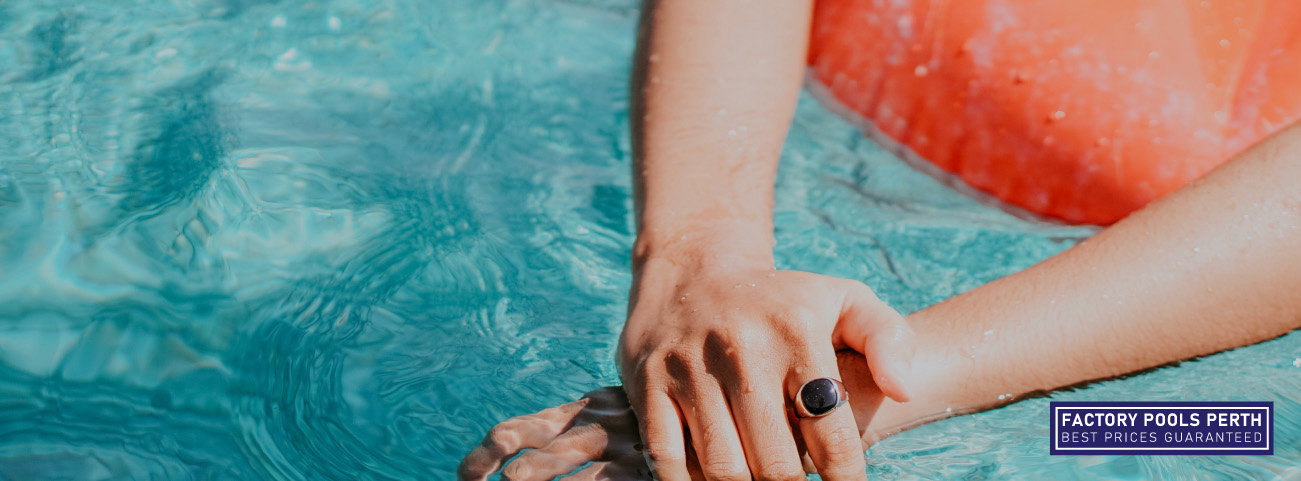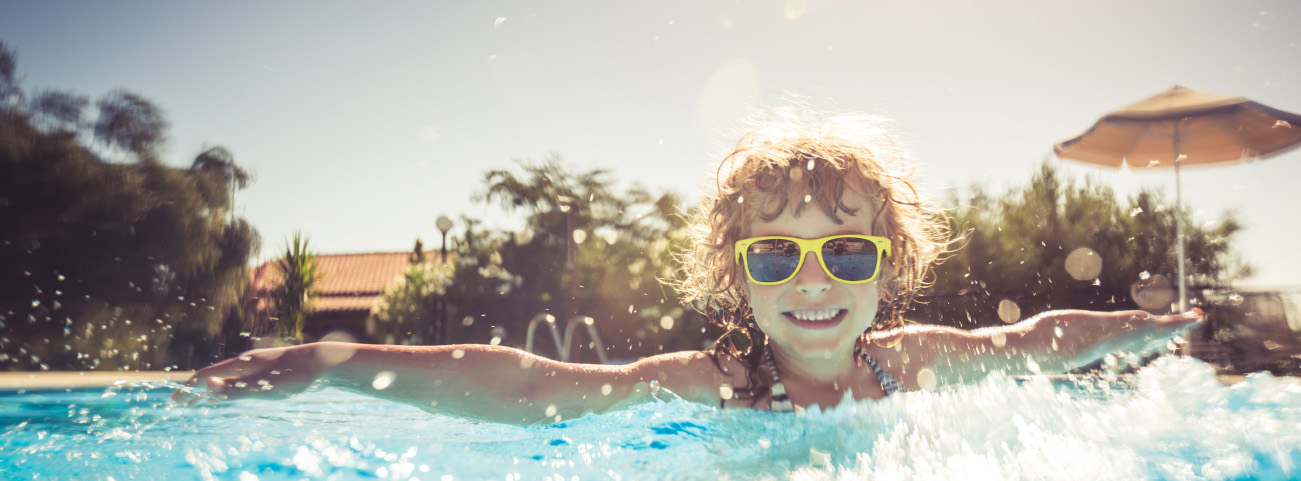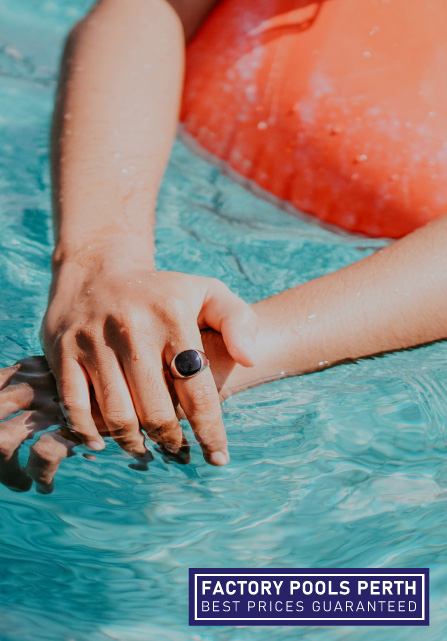Myths About Salt Water Swimming Pools
Australia is just one of two continents completely surrounded by the ocean! It is no surprise to learn, that this great continent is also home to the first ever saltwater chlorine generators invented fifty years ago. Saltwater pools are a popular choice, but if you think jumping into a saltwater pool is like jumping into the sea, think again. Saltwater pools have a salt content of less than 10% of the level you will find in natural seawater. There are many myths surrounding saltwater pools. We want to set the record straight and dissect the fact from the fiction.

What is a saltwater pool?
A saltwater pool uses a saltwater chlorine generator to create chlorine from salt. As water passes through its salt cell, a process of electrolysis occurs and the salt converts into chlorine which is then dispersed in the pool.
Do saltwater pools taste salty?
No, you won’t taste any saltiness in the water of your saltwater pools – because of the minuscule amount that comes from the salt generator.
The ideal salt level in a pool is 3,200 parts per million – the equivalent amount of salt found in human tears. Human beings taste salt around 3,500 parts per million – a negligible amount.
By contrast, dip into the ocean to experience a saltwater content of 35,000 parts per million which you will definitely notice!

Salt is a natural sanitiser
It’s a big misunderstanding that salt disinfects and sanitises your water. Think of it as more of a process that occurs. The salt cell takes the salt from the water and converts it into usable chlorine to make the pool a hygienic place to swim through the process of electrolysis when a chemical change occurs.
Saltwater pools are cheaper
This is debatable. There is definitely less maintenance with saltwater pools because you only need to clean your salt cell every so often. However, there is an initial higher financial outlay to buy and install a saltwater chlorination system. The electricity required to operate it also incurs costs.
Saltwater pools are better for swimming
The real reason people like saltwater pools is that they make for a more enjoyable swim. It can’t get much better than that!
People say the water feels fresher, silkier and softer on the skin. It is also gentler on the eyes and the rest of your body. Plus, there is no need to handle chlorine in its physical form.

You will swim faster in a saltwater pool and burn more calories
It would be wonderful if this statement were true, but it isn’t. No matter where you swim, you will burn the same calories.
On balance, if you can afford the initial investment and ongoing maintenance costs, a saltwater system offers a better swim experience.
Conclusion
Are you thinking of taking a plunge and buying a fiberglass swimming pool? If so, speak to the friendly team at Factory Pools Perth. All our swimming pools have a lifetime structural warranty. You can view the range at three display centres in and around Perth. Read our Google reviews from past customers to discover why we are the first choice for pools in WA.
Myths About Salt Water Swimming Pools
Australia is just one of two continents completely surrounded by the ocean! It is no surprise to learn, that this great continent is also home to the first ever saltwater chlorine generators invented fifty years ago. Saltwater pools are a popular choice, but if you think jumping into a saltwater pool is like jumping into the sea, think again. Saltwater pools have a salt content of less than 10% of the level you will find in natural seawater. There are many myths surrounding saltwater pools. We want to set the record straight and dissect the fact from the fiction.

What is a saltwater pool?
A saltwater pool uses a saltwater chlorine generator to create chlorine from salt. As water passes through its salt cell, a process of electrolysis occurs and the salt converts into chlorine which is then dispersed in the pool.
Do saltwater pools taste salty?
No, you won’t taste any saltiness in the water of your saltwater pools – because of the minuscule amount that comes from the salt generator.
The ideal salt level in a pool is 3,200 parts per million – the equivalent amount of salt found in human tears. Human beings taste salt around 3,500 parts per million – a negligible amount.
By contrast, dip into the ocean to experience a saltwater content of 35,000 parts per million which you will definitely notice!

Salt is a natural sanitiser
It’s a big misunderstanding that salt disinfects and sanitises your water. Think of it as more of a process that occurs. The salt cell takes the salt from the water and converts it into usable chlorine to make the pool a hygienic place to swim through the process of electrolysis when a chemical change occurs.
Saltwater pools are cheaper
This is debatable. There is definitely less maintenance with saltwater pools because you only need to clean your salt cell every so often. However, there is an initial higher financial outlay to buy and install a saltwater chlorination system. The electricity required to operate it also incurs costs.
Saltwater pools are better for swimming
The real reason people like saltwater pools is that they make for a more enjoyable swim. It can’t get much better than that!
People say the water feels fresher, silkier and softer on the skin. It is also gentler on the eyes and the rest of your body. Plus, there is no need to handle chlorine in its physical form.

You will swim faster in a saltwater pool and burn more calories
It would be wonderful if this statement were true, but it isn’t. No matter where you swim, you will burn the same calories.
On balance, if you can afford the initial investment and ongoing maintenance costs, a saltwater system offers a better swim experience.
Conclusion
Are you thinking of taking a plunge and buying a fiberglass swimming pool? If so, speak to the friendly team at Factory Pools Perth. All our swimming pools have a lifetime structural warranty. You can view the range at three display centres in and around Perth. Read our Google reviews from past customers to discover why we are the first choice for pools in WA.



